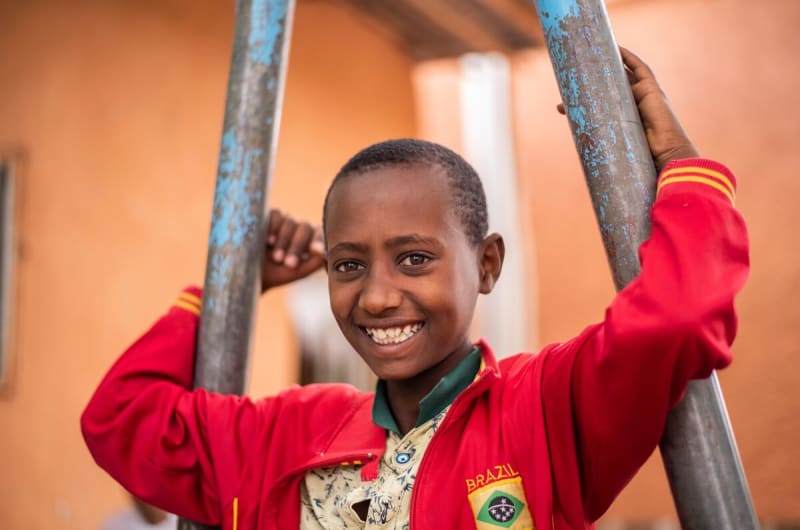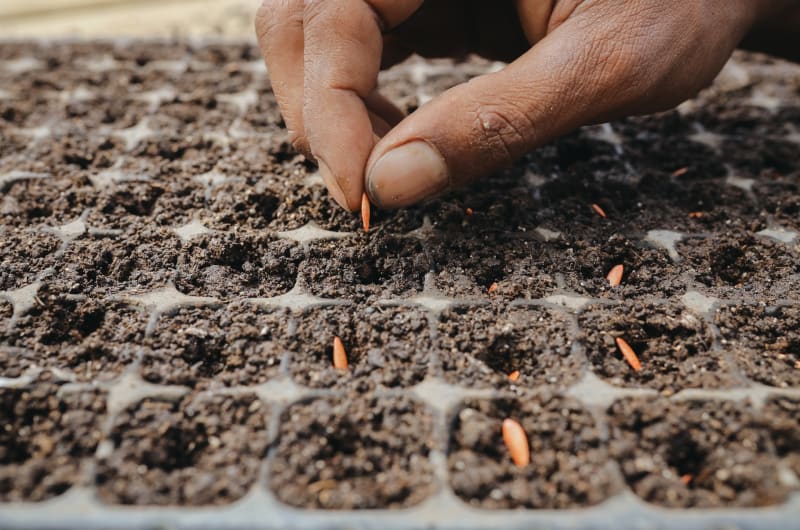As an African child myself, I was raised in the culturally diverse country of Nigeria with a consciousness that formal education is a privilege.
Albeit, not in a way that I ever had reason to fear that this access to education could ever be taken away from me, but in a way that allowed me to understand that not everyone had this access to learn freely and empoweringly.
For the past 46 years, the world has commemorated the Day of the African Child to recall a day in 1976 when high-school students lost their lives in South Africa when they protested an oppressive education. These children stood up to fight for their right to be taught in their native language and not in a foreign language. Because it’s true, education should meet a child where they are at, in a way that fits how they learn, so that they can truly flourish into all that God has made them to be.
While there has been significant progress since that sad day in African history, available data on access to education is still disheartening. According to UNESCO, Sub-Saharan Africa has the highest rates of education exclusion. Over one-fifth of children between the ages of about 6 and 11 are out of school, followed by one-third of youth between the ages of about 12 and 14. In addition, almost 60 per cent of youth between the ages of about 15 and 17 are not in school. Where there is inaction, so much is at stake. Children growing up in unstable communities continue to face inequality, violence, and injustice
Dismissed from school
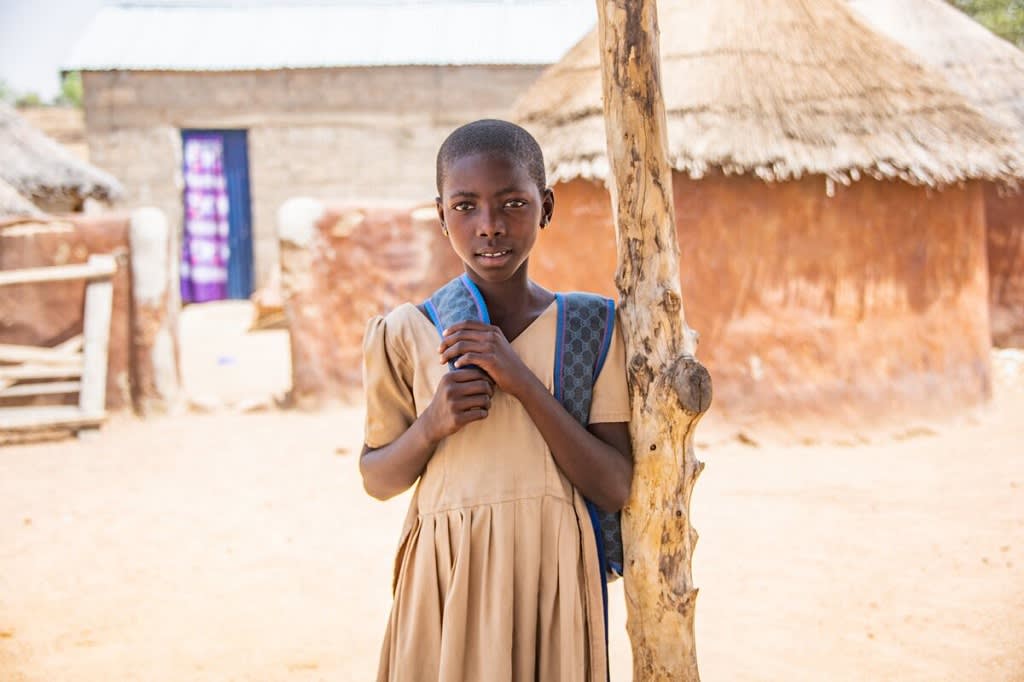
Like many children in the Togolese community of Koni, Bernadette has known the harsh reality of being sent home from school.
On what began as a normal school day, the principal walked into the classroom and told her to leave and stay home until her school fees were paid. It was too much for the nine-year-old to bear. “I felt so miserable and abandoned,” she says.
No child should have to be excluded from the joy of learning. But for Bernadette, this was only part of the hardships she’s had to face.
From grade one to three, Bernadette never wore a school uniform and often went to school with an empty stomach. Her mother, Dambe, is a weaver, and her father is a farmer, but their combined income is insufficient to cover their family expenses, much more Bernadette’s education.
Faced with the reality that she might stay home until the family could afford to pay her school fees, Dambe feared for her daughter’s future. Once a young girl with no access to education, she knows firsthand that life can be particularly hard for women without education. But Dambe wants so much more for her daughter. She wants her to have the access she never had and the future she never did.
Breaking the barriers
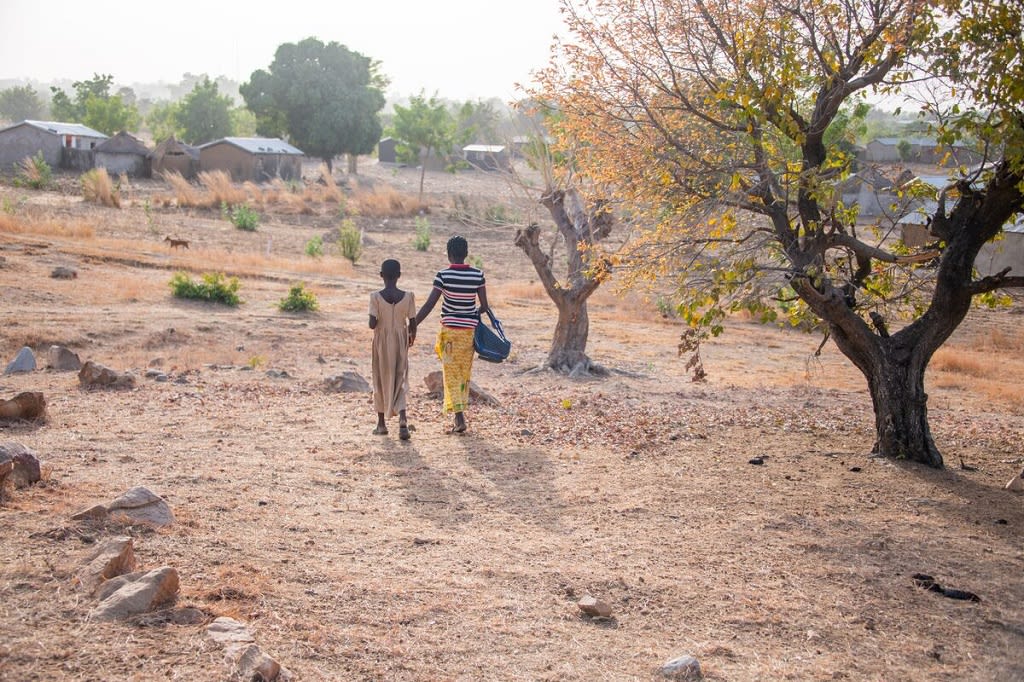
But with no means to send her daughter back to school nor sustain her education, Dambe just couldn’t see how this would be possible.
As the director of the local Compassion centre in Koni, Mimbouabe has witnessed the slow decline in parental interest and involvement in their child’s education. He has seen how parents like Dambe have resorted to withdrawing their children from school completely to enroll them into early apprenticeship because they couldn’t afford to keep them in school.
It takes resources and support to keep a child in school. Children need learning materials like textbooks, notebooks, school bags as well as food to keep them healthy and focused enough to learn. When children don’t have to learn on an empty stomach, they perform better in school.
“Many children would go to school without eating anything, and they often fainted in class due to hunger,” says Mimbouabe. “Most children would go to school barefoot. They didn’t have school uniforms nor school bags and would be wearing any sort of clothes, dirty or torn, to attend school.”
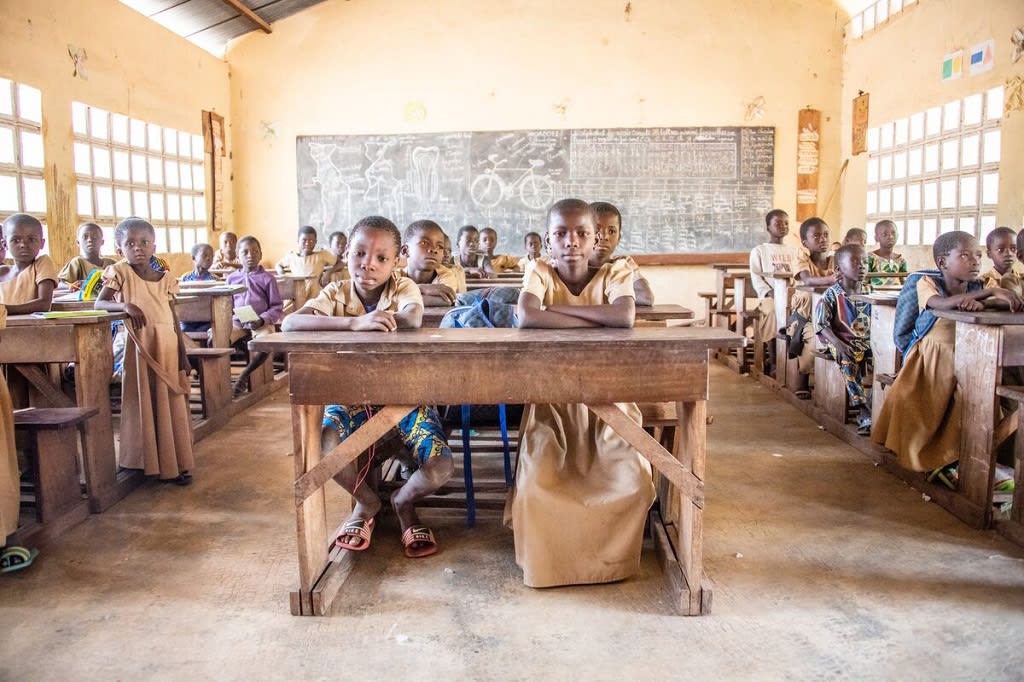
Without books and other learning materials, children are unable to take notes nor study after school. Therefore, relying solely on memory to pass tests.
Like other students in Koni, Bernadette does her best to concentrate, but hunger and stress are a distraction. Unfortunately, she failed and repeated her class three times.
“My performance at school was very low. I couldn’t understand the lessons. I was worried about what I would become,” Bernadette shares.
Open doors
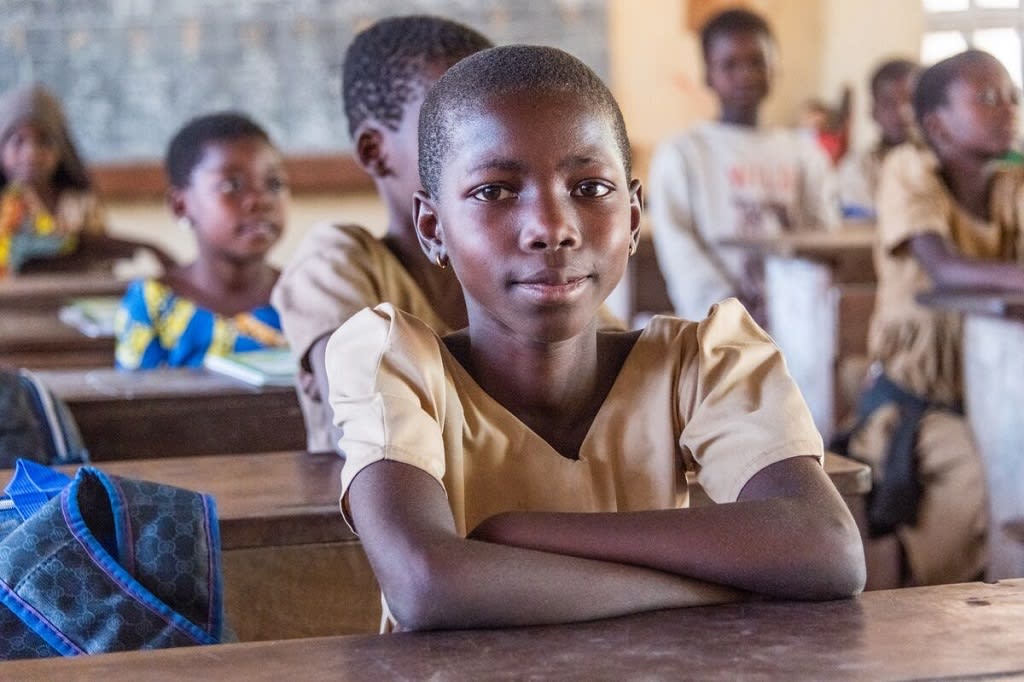
This is where Compassion comes in. For Compassion, education is a priority. We support local communities by providing learning resources and educational opportunities that equip children for futures free from the ills of poverty. We understand that when you empower a child through education and give them the opportunity to receive the Gospel, they are positioned to become the agent of change that transforms the lives of others in their families and their communities.
When the Deeper Life Church Child Development Centre opened its doors in 2019, everything changed in Koni community. Through this center, Compassion focused on education, alongside providing much-needed support for food and other necessities. Staff distributed school items to all the children enrolled in school and paid all their school fees. Children also received school bags, school uniforms, shoes, and pullovers for the cold season.
Hope was renewed in Koni community. Dambe’s could once again see how the future she hoped for her daughter could be made possible. “When I see my daughter, I smile. I am proud of her. She now has everything she needs, and her books are always kept dry in her school bag—even when it rains,” Dambe shares.

Students in Koni began to thrive in school. But the centre staff wanted to go further. They were committed to helping the children become their best. The centre started hosting seminars for parents, to increase their awareness of the importance and value of their children’s education. Parents were taught how to follow up with their children’s schoolwork even if they were uneducated themselves. Parents in Koni began to understand that their children’s education was worth their time and investment and with every seminar that was held, more parents showed up.
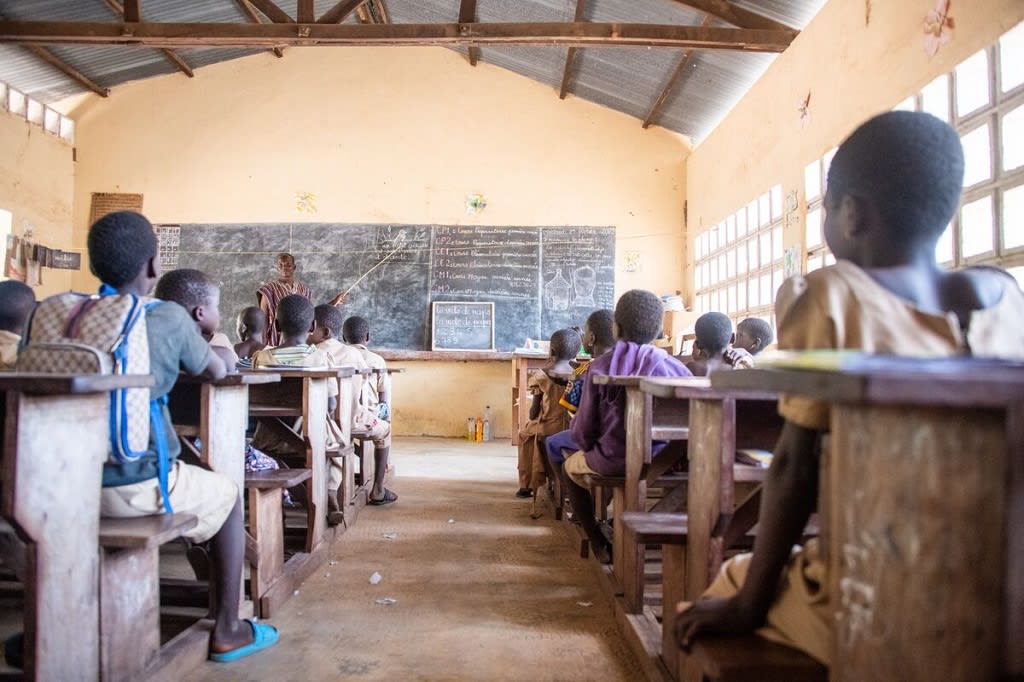
“The parents didn’t know their children had potential. If we had not worked with these parents, we would have let heroes sleep. We had to ignite sparks!” says Mimbouabe, the centre director.
Centre staff established a follow-up system with the school. They visited the school once a week to discuss the children’s progress with their teachers. This created opportunities for teachers to identify specific support that the children needed. Children were met where they were at, and through focused tutoring, teachers were able to help the children succeed.
“We decided that we want excellent children. So, we had to give this opportunity to our children to be the best. If they are not, then we have failed our mission,” says Mimbouabe.
Change has come
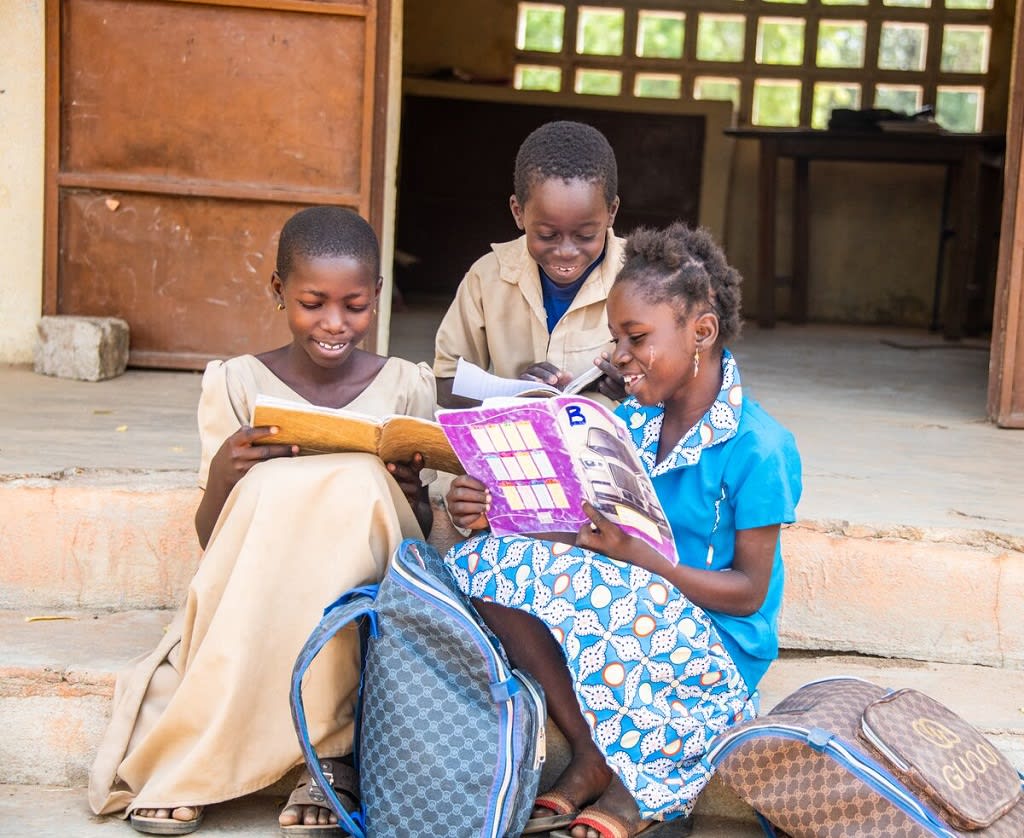
The collaboration between centre staff, parents, and teachers has been transformative. The children’s confidence and performance has improved. Reportedly, out of the 196 children enrolled at the Compassion centre, 112 now receive excellent grades at school and are at the top of their exam results.
“The change is awesome,” says Mimbouabe.
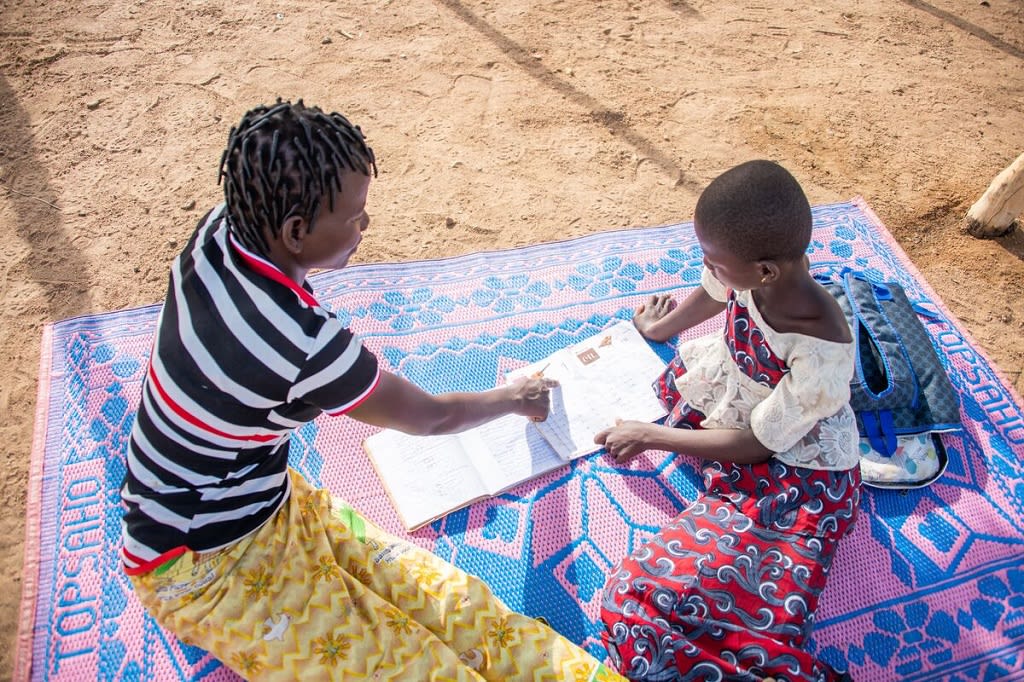
At school and at home, Bernadette receives all the support she needs to learn and thrive. Although Dambe is uneducated, she uses the tips she was taught by the center to follow up on her daughter’s education and helps her revise her lessons.
For Bernadette, the disappointment of failing exams is a thing of the past. She has passed every exam since she registered with the Compassion program. Currently in grade five, she has become one of the best students in her school.
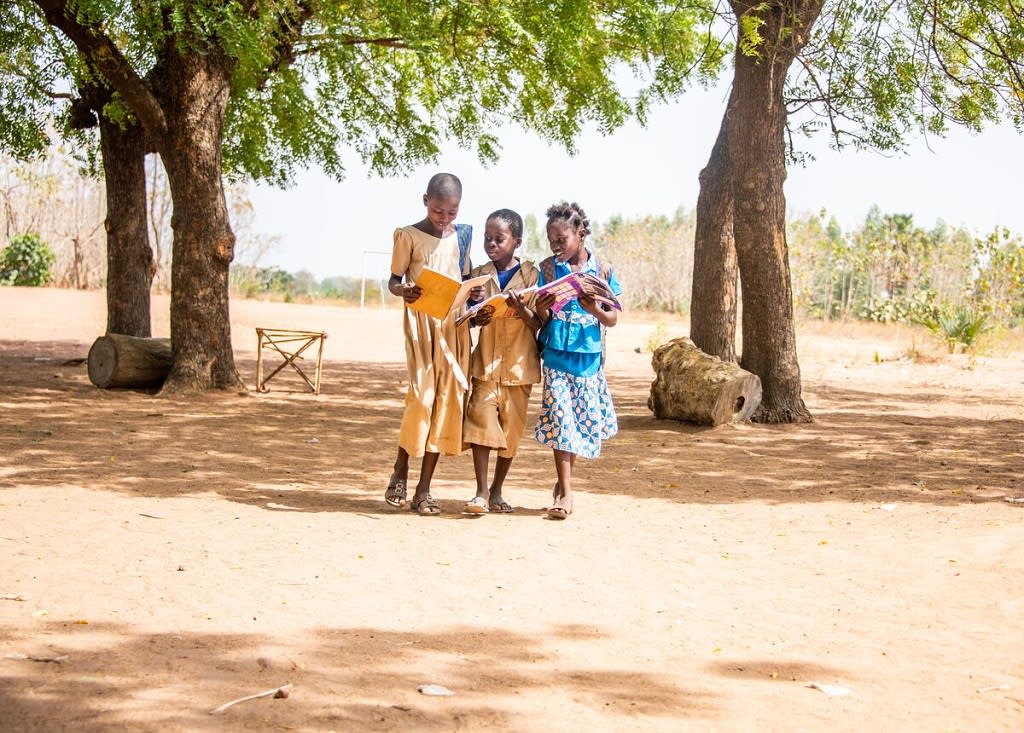
The children at the Compassion centre are now confident to express themselves. With proper uniforms and school supplies, they feel like they belong in the classroom. They also have fresh water to practice personal hygiene and protect their health. All of this has dramatically changed their demeanor.
People in the community are noticing that the children from the centre are thriving, and this has motivated other parents to become more invested in their children’s education. A commitment to education is growing across the entire community like never before.

As for Dambe, she’s no longer anxious about her daughter’s future. She has confidence and believes Bernadette can achieve anything.
“Now I believe in my daughter, and I am hopeful she can even buy a plane for me one day!” she says. “I am grateful to the sponsors for their support.”
Bernadette is also growing in self-confidence. She believes she will have a great future. She is nurturing the dream of becoming a government minister.
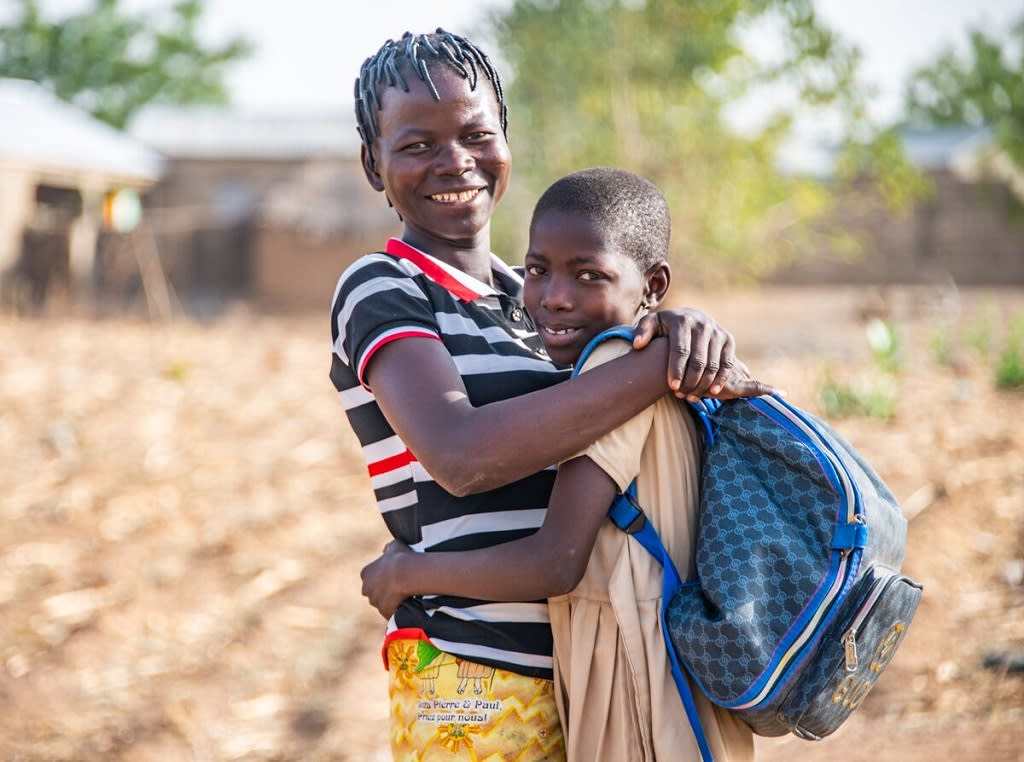
Mimbouabe can barely believe the changes that have taken place in the community in just a few years.
“We are moved that we simple people could make such transformational changes in this community. It would have been difficult for us as a church to change this community into what it looks like today.” He says. “The evidence is that the church was here a long time ago with little change. But thanks to our partnership with Compassion and what it is bringing in, the heart of the community has opened.”
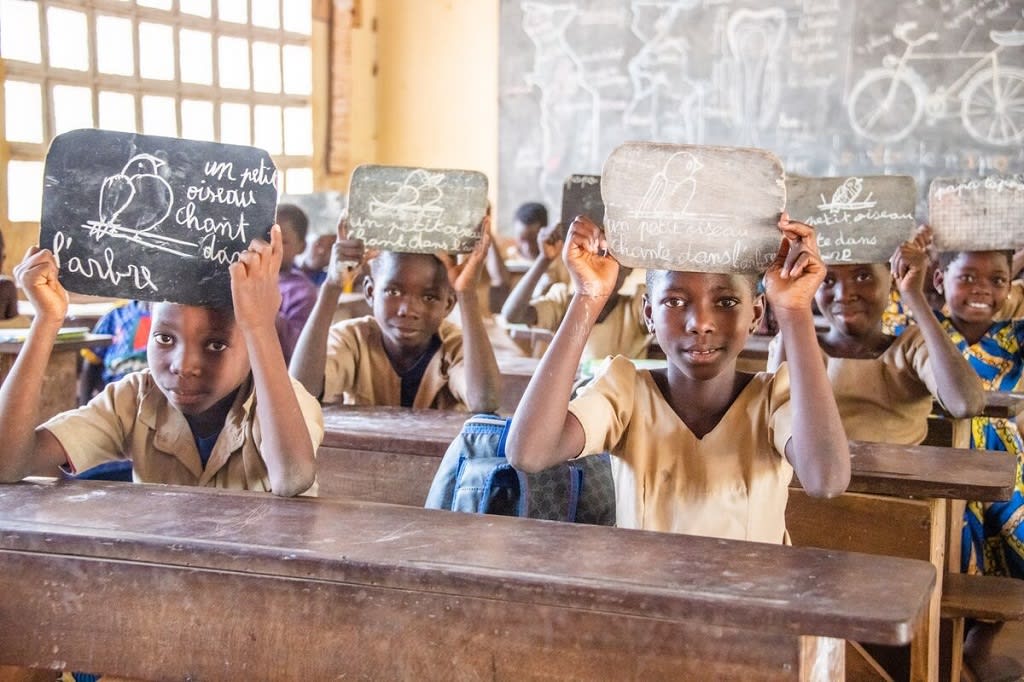
Worldwide, one in five children are not in school. Approximately 1 billion children fell behind due to the COVID-19 pandemic. According to the African Committee of Experts on the Rights and Welfare of the Child (ACERWC), the theme for the Day of the African Child 2022 is Eliminating Harmful Practices Affecting Children: Reviewing Progress on Policy and Practice since 2013.
Over the years, the committee has identified many ways that children in Africa can be protected from many harmful practices that persist in their communities. At the top of that list is the empowerment of children. Equipping children with the skills and knowledge they need to make informed decisions for their own health and wellbeing is the way to create locally driven sustainable development.
Compassion is committed to supporting local churches so that they can empower and transform their communities through education and the power of the glorious Gospel. We have seen how the education and transformation of one child changed the trajectory of their families and their community. We must not underestimate the impact of child empowerment.
When we support the education of children, we give a family a chance at a better future and a community the opportunity for sustainable development.
Would you consider supporting the education of a child like Bernadette today?




